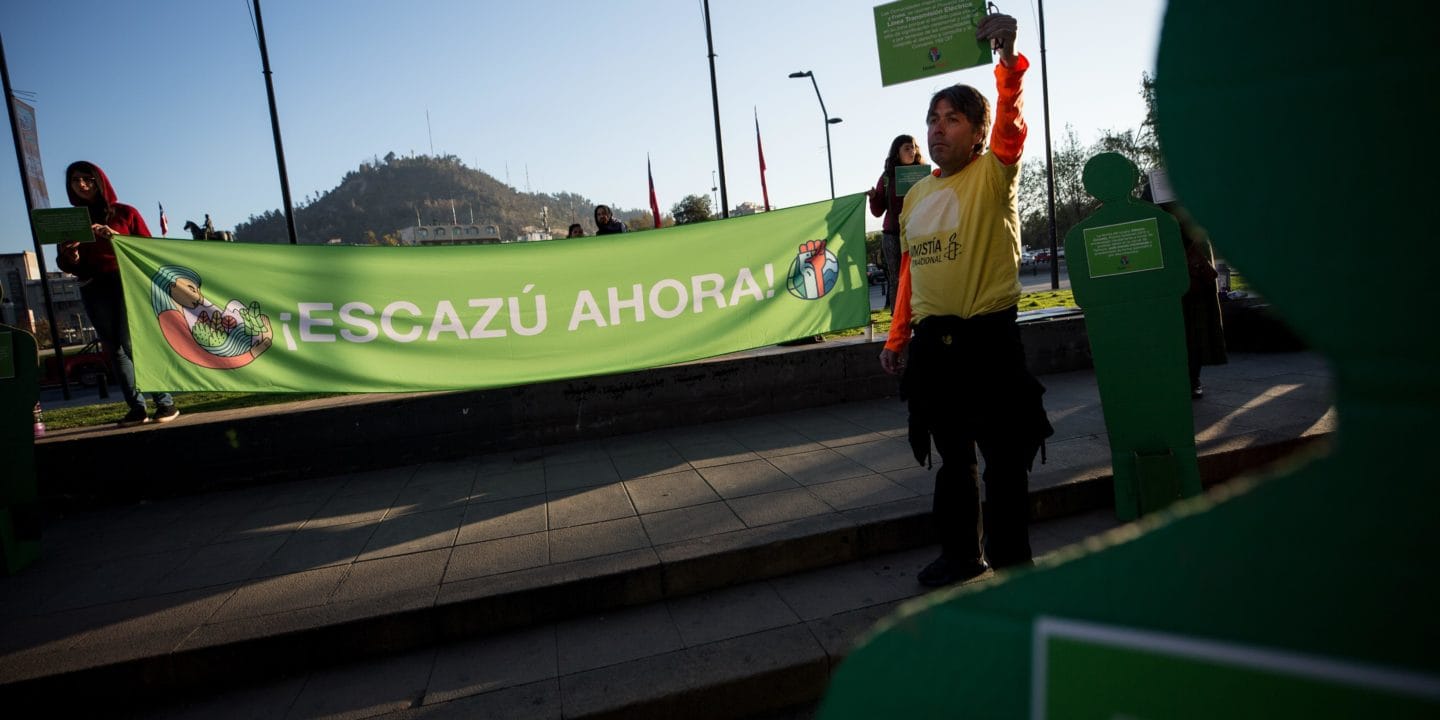For environmental and land rights defenders in Latin American and the Caribbean (LAC), the past few years have been the deadliest in recorded history. Now, environmental lawyers and advocates alike are hoping that a recently ratified regional agreement may bring a much-needed halt to this violence and protect activitists.
The Escazu Agreement is an innovative, legally binding agreement that is essential in reducing threats to defenders who take a stand to protect the planet’s land, water, and ecosystems.

Members of civil society organizations who attended the Escazú Agreement workshop, “People Protecting our Planet” on July 23, 2019 at the Lloyd Best Institute, Tunapuna, Trinidad and Tobago. PHOTO BY CANARI.
Carole Excell, an environmental lawyer and Director of Environmental Democracy at the World Resources Institute, has been working on bringing the Escazu Agreement to life for the past ten years: “This is an agreement for people and it is best influenced by people, that is where the power comes, the role for us is to get the information out there.”
Currently, 12 LAC nations have ratified this framework which ensures legal protections and procedural rights for people engaged in environmental matters, especially those in vulnerable communities.
“Escazu is one of the strongest environmental rights agreements in the world,” says Excell. “By including rights to information access and public participation, Escazu has recognized the links between environmental justice and human rights.”

Protestors in Santiago, Chile, call for the ratification of the Escazú Agreement on access to information and protecting environmental defenders (image: Alamy)
While the agreement has raised hope and expectations, the affirmed governments are falling short in carrying out implementation. In order to bridge this gap, Excell and co-author, Danielle Andrade-Goffe, published an assessment tool to assist in aligning current law and policy with the Escazu provisions.
The National Legal and Policy Assessment to Support Ratification and Implementation of the Escazu Agreement contains legal indicators which correspond with Escazu, and are meant to be used by environmental lawyers- most often hired by civil society groups seeking universal rights for all.
“The goal of the assessment is to determine how best to create a process of reform that would allow complete compliance with the Escazu agreement,” says Excell.
In the Jaimaca and St. Lucia, the first two nations to pilot the assessment, there were several instances where provisions were partially enacted. Discovering these are important when drafting up a report to the government in order to set up priorities for reform.
“Escazu is really an instrument that puts people at the heart of environmental decision-making,” Excell explains, “including rights to participate in decisions made in almost every sector; in cities and rural areas, in transportation, the air quality near my kids school, the water quality in my pipes, all of it.”

Fourteen Countries Sign New Generation Agreement at UN Headquarters on Access to Information, Public Participation and Justice in Environmental Matters
The Agreement extends rights to access and participation in ways that are often not otherwise recognized in a majority of LAC nations. “We recently studied and found a direct connection to the lack of provisions of public participation to defenders being attacked,” Excel continues, “and where there is a lack of provisions on access to information, the conflicts become worse.”
When it comes to protecting environmental defenders, including public participation processes is essential. “It is all intertwined,” Excell assures, “this is a type of agreement where you have to work on everything to get change.”
Although the LAC nations are at different stages of development with regards to the Escazu agreement, some have succeeded in the creation of frameworks; information laws in Mexico, for example, were considered the most progressive in the world when they were devised.
The issue is in ensuring that frameworks are implemented, and do not simply remain bureaucratic fictions. In many LAC countries, the systems that establish environmental and procedural rights are weak, and “governments are often faced with powerful lobby groups pushing for a project,” Excell describes, “without having a process or the capacity to think of ‘how do we create development in such a way that brings communities along with us?’”
And where governments struggle, Excell and Andrade-Goffe’s assessment aids in defining the steps a government needs to put in place in order to meet the standards of Escazu.
“I have seen the power of these rights to change how development is done.” Excell says. “There are different ways to approach communities: giving access to a proposed plan at an early stage, for example, and having community discussions, which include women and Indigenous people.”
Excell remains hopeful that more LAC nations will ratify as civil societies will continue to push to exceed the agreement. The biggest concern is sufficient financing. “It is going to take real investment to implement this agreement,” Excell remarks.
LAC funding is small in comparison to other regions, which is unfortunate given that Excell insists there is a strong link between Escazu and the success of other climate agreements, such as the Paris Agreement. “Funding this kind of rights based agreement could build a governance framework to properly implement an agreement like Paris.”
The world’s first ever set of provisions enacted to protect the rights of those involved with safeguarding Earth’s ecosystems will have its inaugural conference in April 2022 in Chile. The Committee to Support Implementation and Compliance will negotiate the terms of how compliance will be measured, by whom, and how the agreement will be financed.
“Governments learn so much from each other through these international agreements,”Excell says, looking forward to the conference, “I hope it will galvanize real significant change.”
Kalee Lamp Sparr for Times Media Mexico



